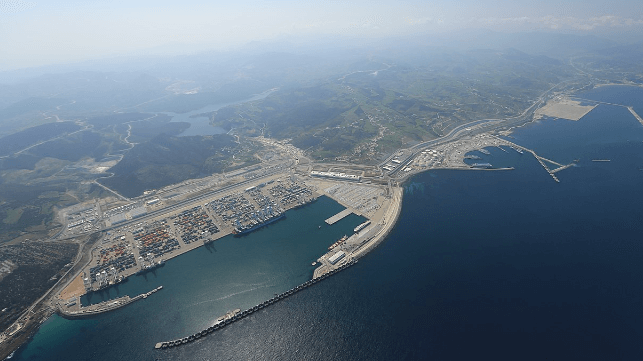Why German Corporations are Nearshoring in Morocco

There is now a consensus among companies on the need to build resilient supply chains, as the last two years have exposed glaring fault lines in the global logistics sector. The result has been the emergence of new trade relations between countries, opening up new areas to development.
Morocco’s privileged location in the north of Africa, facing the Mediterranean and the Atlantic Ocean, has made it a formidable trade partner with industrialized European countries in their plans to stabilize supply chains.
Most importantly, Morocco’s massive investment in its transport and logistics sectors have made it a strategic business center. From the extensive port and industrial complexes of Tangier Med in the north to the ongoing construction of Dakhla Atlantic Port in Southern Morocco, it is plain that the Moroccan government is on a drive to position the country as a manufacturing and shipping hub.
This could explain why Germany has recently renewed its focus on deepening a trade partnership with Morocco. The nation has become a favorite nearshoring spot for German companies seeking to steady their supply chains, and Russia’s war against Ukraine has helped to catalyze the process.
The economic partnership between Germany and Morocco is pegged on the automotive manufacturing value chains. According to Moroccan customs data, Morocco exported goods worth $1.1 billion to Germany in 2020, with cars comprising the main products.
“The rise of Morocco’s automotive sector was facilitated by Rabat’s 2014-2020 Industrial Acceleration Plan, which, along with Rabat’s concurrent development of high speed, high-volume capacity transportation, incentivized foreign automotive manufacturers to locate their plants in Morocco, with German firms represented among them,” commented Prof. Michael Tanchum, a MENA affairs expert, in a recent post by the Moroccan Institute for Policy Analysis.
The Moroccan automotive supply chain would prove valuable to European car manufacturers after Russia invaded Ukraine, disrupting the supply of vehicle wire harnesses. Leoni, a global supplier of car wiring system, had to slow production at two of its plants in Ukraine, affecting operations of major automotive manufacturers. Some of the manufacturers that depended on the plants include Porshe, Volkswagen, BMW and Mercedes- Benz.
Fortunately, the German corporations had the option of shifting focus to Morocco, where Leoni boasts ten production plants. In fact, Leoni was an early participant in the rise of the Moroccan automobile manufacturing sector, having set up camp in the country over a decade ago. It was a designated core supplier to Group PSA for just-in-time delivery for its factories in France, Spain, Austria, Russia and Slovakia.

that matters most
Get the latest maritime news delivered to your inbox daily.
In June, another German car-parts manufacturer, Stahlschmidt Holdings, launched its first manufacturing units in the industrial zones of Tanger Med Port. The units are located near a Renault factory and according to Prof. Tanchum, going by the sheer size of Stahlschmidt’s overall investment, it may indicate the company anticipates shifting its Polish and Hungarian manufacturing operations to Morocco.
According to the Director-General of the Tangier Med Port, Mahdi Tazi Al-Rifi, this reflects Morocco’s leadership in providing the state-of-the-art port services for both the Mediterranean and African regions.
